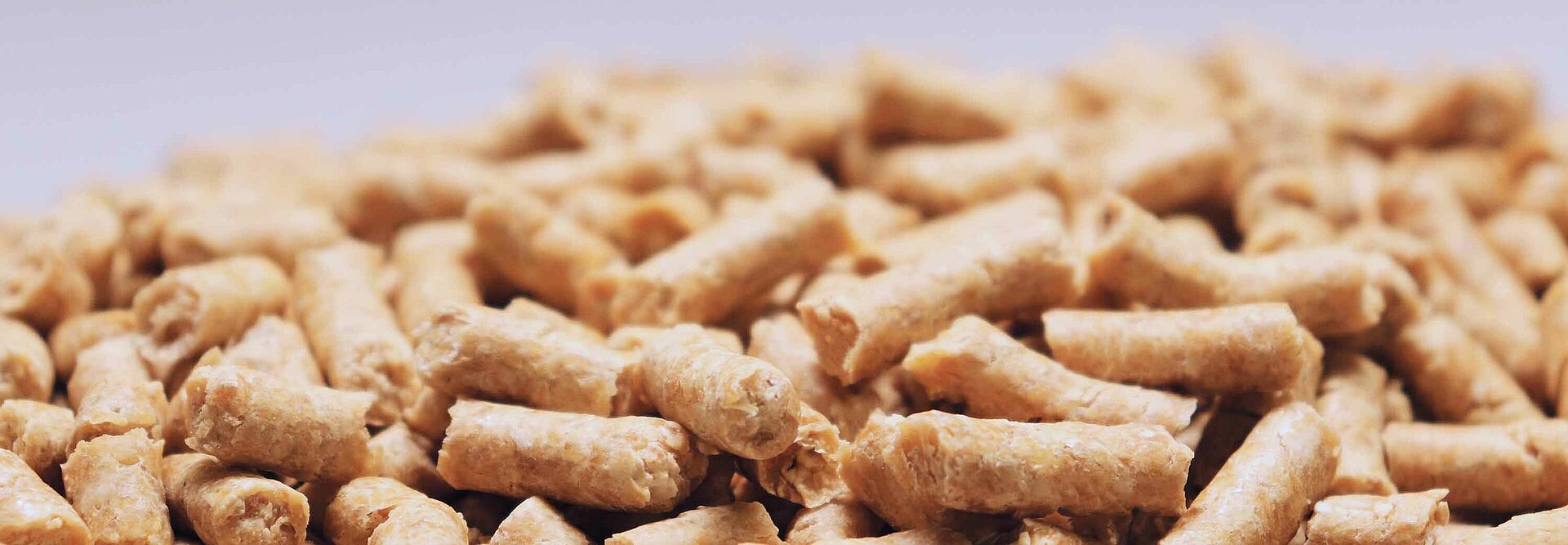Different oilseeds are processed in oil mills worldwide. The best known and most processed oilseeds in percentage terms are soya (>50 percent) and rapeseed (>12 percent) as well as sunflower seeds, linseed, palm kernels, cotton seeds, peanuts and many more. The respective oil is filtered from these seeds in partially complementary processes. The traditional method is pressing by means of a screw press. The pressed product, also known as press cake, has a residual oil content of 6 to 9 percent, depending on the oil seed. To further reduce this residual oil content, a chemical process with fat solvents, usually hexane, is used (= extraction). The extraction meal then has a residual oil content of between 0.5 and 2 percent - depending on the oilseed.
Both the press cake and the extraction meal are processed in the compound feed industry to supplement animal nutrition. The energetic value varies depending on the process and the residual oil content. A special feature, however, are the vegetable protein values of these by-products. Depending on the oilseed and pre-treatment, they have a protein value of up to 48 percent. To reach this value, the oil seeds are hulled before the oil is pressed. AMANDUS KAHL offers suitable machines and plants for this process, but also for the subsequent pelleting of the hulls, press cakes or extraction meals. These by-products are pelleted to ensure that they are easy and trouble-free to handle.
The extensive AMANDUS KAHL machine and plant portfolio offers numerous possibilities to meet different requirements regarding the treatment and processing of by-products from oil extraction.
Applications and Advantages
- Increase of the nutritional value in the compound feed industry
- High percentage of vegetable proteins
- Assistance in the planning and implementation of your project
- Quality and safety according to German standards

